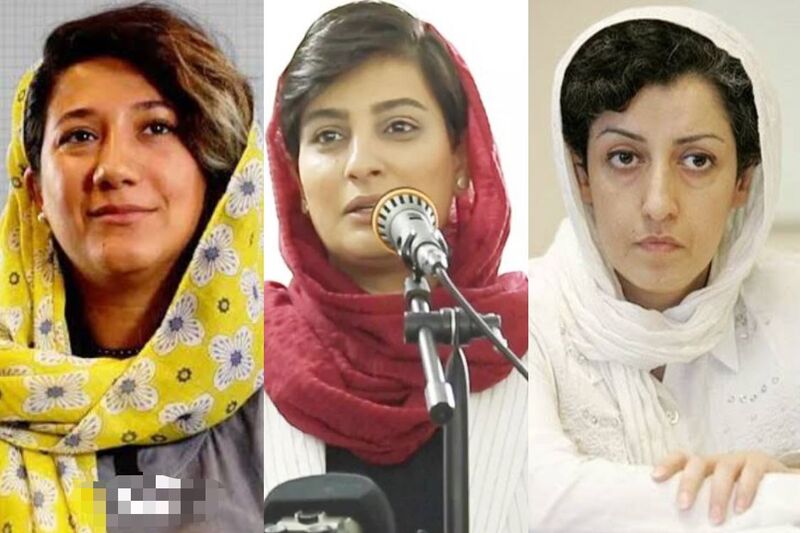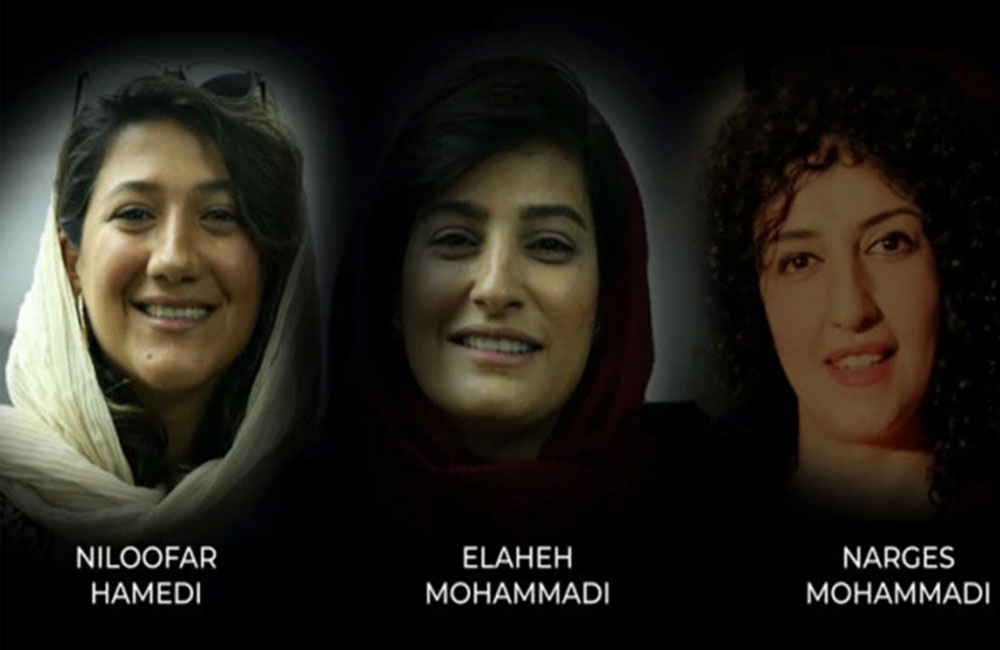Niloofar Hamedi, Elaheh Mohammadi and Narges Mohammadi have been named as the laureates of the 2023 UNESCO/Guillermo Cano World Press Freedom Prize, following the recommendation of an International Jury of media professionals.
The three laureates

Niloofar Hamedi writes for the leading reformist daily newspaper Shargh. She broke the news of the death of Masha Amini following her detention in police custody on 16 September 2022. She has been detained in solitary confinement in Iran’s Evin Prison since September 2022.
Elaheh Mohammadi writes for the reformist newspaper, Ham-Mihan, covering social issues and gender equality. She reported on Masha Amini’s funeral, and has also been detained in Evin Prison since September 2022. She had previously been barred from reporting for a year in 2020 due to her work.
Niloofar Hamedi and Elaheh Mohammadi are joint winners of both the 2023 International Press Freedom Award by Canadian Journalists for Free Expression (CJFE), and Harvard's 2023 Louis M. Lyons Award for Conscience and Integrity in Journalism. They were named as two of Time Magazine’s 100 Most Influential People of 2023.
Narges Mohammadi has worked for many years as a journalist for a range of newspapers and is also an author and Vice-Director of the Tehran-based civil society organization Defenders of Human Rights Center (DHRC). She is currently serving a 16-year prison sentence in Evin Prison. She has continued to report in print from prison, and has also interviewed other women prisoners. These interviews were included in her book “White Torture”. In 2022, she won the Reporters Without Borders’ (RSF) Courage Prize.
Women journalists under threat
Globally, women journalists and media workers face increasing offline and online attacks and are subject to disproportionate and specific threats. The gender-based violence they are exposed to includes stigmatization, sexist hate speech, trolling, physical assault, rape and even murder.
UNESCO advocates for the safety of women journalists and collaborates with partners to identify and implement good practices and share recommendations with all parties involved in countering attacks against women journalists, as recognized by numerous UN resolutions.
In 2021, UNESCO published The Chilling, a study on global trends in online violence against women journalists, which demonstrated the extent of attacks against women journalists and the impact on their well-being, their work and press freedom at large.
UNESCO works with partners to develop practical tools for journalists, media managers and newsrooms to respond to online and offline abuse. UNESCO also partners with specialized organizations to train women media workers on the ground and through online training courses, and works with security forces to sensitize them on freedom of expression with a gender focus.

Leave your comments
Login to post a comment
Post comment as a guest